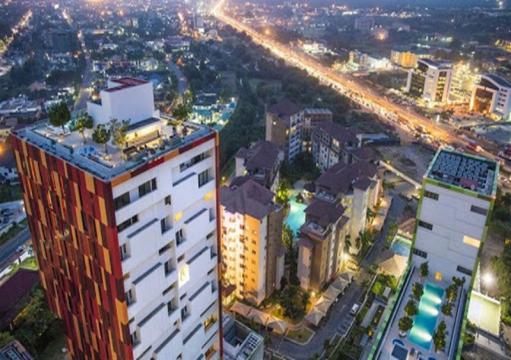How Much Should Landlords Increase Rent Every Year in Accra?
How Much Should Landlords Increase Rent Every Year in Accra?

Paying rent is an integral part of every tenancy agreement, and a tenant's failure to pay rent could result in eviction. But what happens if your landlord is fond of increasing rent as and when he so desires? It is very common in Accra to see tenants complain about their landlord's frequent habit of increasing rent annually.
In Accra, maintaining a rental property is expensive. You occasionally have utility fees in addition to maintenance and property tax payments. As a result, landlords must periodically increase rent to cover rising costs. But how much rent can they raise in Ghana?
This guide aims to provide landlords in Accra with an understanding of the factors involved in determining the annual rent increase. By considering market conditions, legal considerations, property-specific factors, and tenant retention, landlords can make informed decisions that ensure a fair and sustainable rental income while maintaining positive landlord-tenant relationships.
When Can A Landlord Raise Rent In Ghana?
Typically, when a lease agreement is expiring, landlords have the opportunity to increase the rent when negotiating a new lease with the tenant. If the rental agreement is month-to-month, they may raise it at any time. However, this is not the case in Ghana.
According to the Rent Act and the Ghana Rent Control Department, landlords do not have the absolute right to increase rent without the Rent Control Department conducting an assessment of the property and issuing a certificate of satisfaction.
This means that any landlord who wants to raise rent should first apply for an assessment of the property and obtain a certificate of satisfaction from the Rent Control Department. Though this is the law, most landlords do not work with this provision.
When Can A Landlord Not Raise Rent In Ghana?
The attitude of landlords taking a 2-year rent advance is not favourable when it comes to rent increases in Ghana. This is because landlords won't be able to review the rent until the lease is renewed. While the current rental agreement is still in force, the landlord cannot apply to raise the rental rate.
Everywhere in the world, a rental agreement is a contract that is intended to be binding on both parties. So, when a landlord does not provide a Rent Increase Notice when presenting lease renewal options, the rent cannot be increased.
Also, if the lease agreement states that the rent price will not increase if renewed for another term, your landlord does not have the discretionary power to increase the rent even when negotiating for a new lease.
Why Do Landlords Raise Rent In Accra?
Usually, landlords in Ghana follow the behaviour of the rental market in Accra. Some landlords increase rent based on the current market rent without taking into consideration the factors that may induce rent inflation. However, the following are some common reasons why landlords in Ghana may choose to raise rent:
1. Rising Expenses
2. Inflation
3. Market Demand and Property Value
4. Property Improvements and Upgrades
5. Fair Return on Investment
How To Determine The New Rent Price In Ghana
It is important to note that while landlords have valid reasons for raising rent, it is crucial to strike a balance between maintaining profitability and considering the affordability of tenants.
According to the Rent Act, a landlord in Ghana can only increase the rent when there is an increase in rates for the premises assessed by the Rent Control Department. Even if the rent officer assessed the premises and issued a certificate of assessment, the landlord has to notify the tenant in writing in the prescribed form stating the amount of the old rates and the amount of the new rates.
However, before you apply for an assessment on your property from the Ghana rent control department, make sure to undertake the following steps:
Conclusion
Determining the appropriate annual rent increase for landlords in Accra requires a careful balance between financial considerations, market conditions, legal requirements, and tenant satisfaction. By considering factors such as market trends, property-specific factors, and tenant retention, landlords can make informed decisions that ensure a fair and sustainable rental income while maintaining positive landlord-tenant relationships.

 French
French




